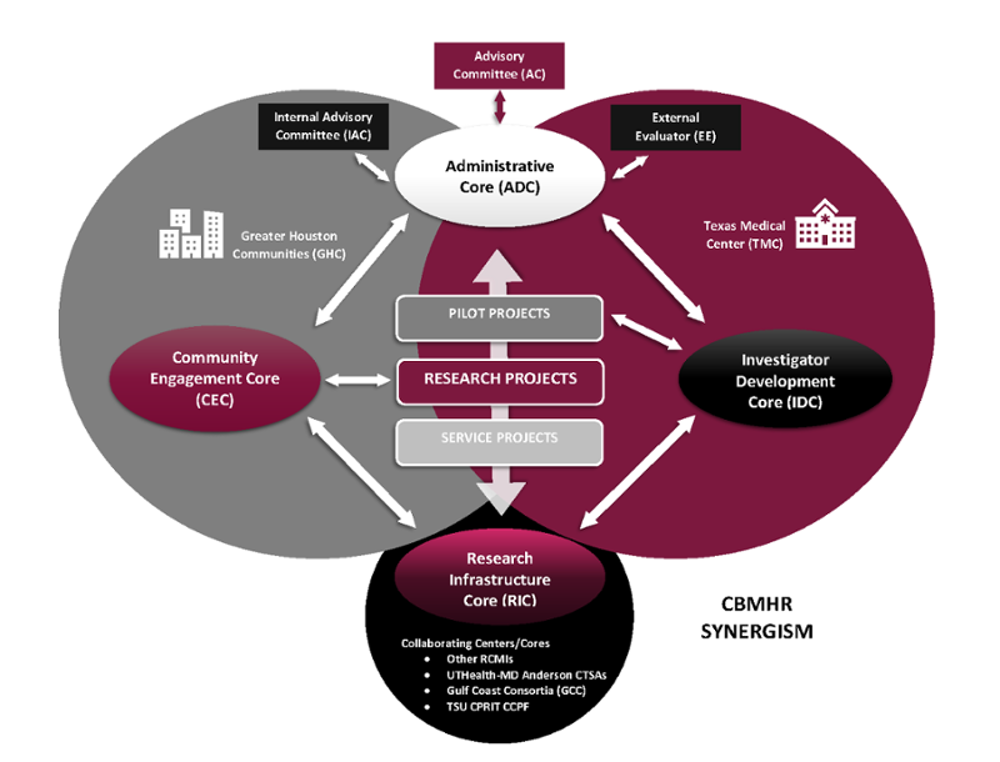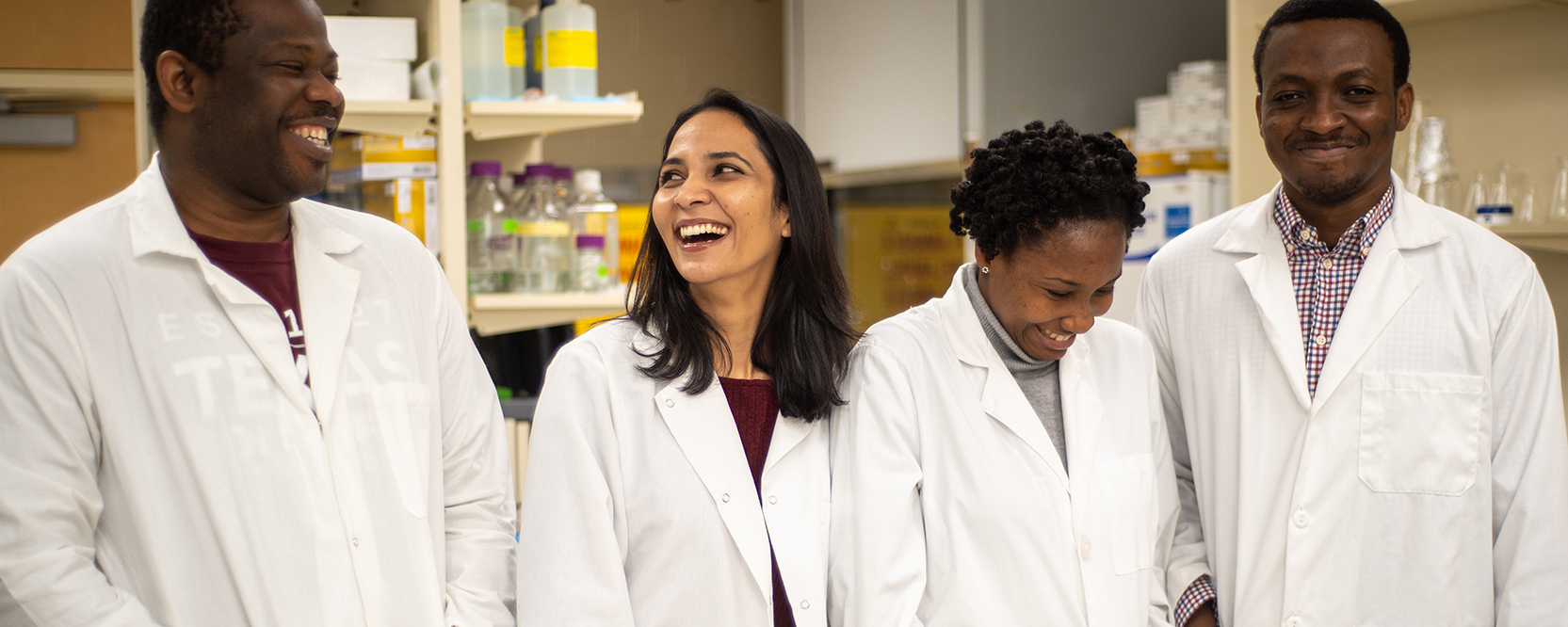Center for Biomedical and Minority Health Research
Vision and Mission
Texas Southern University (TSU), one of the nation’s largest HBCU, on September 25, 2020 received a 5-year $8.63 million grant award from the National Institute of Health’s National Institute on Minority Health and Health Disparities, to establish a Center for Biomedical and Minority Health Research (CBMHR). TSU has a long history dating back to the 1986 when the University was awarded its first NIH-supported Research Centers for Minority Institutions (RCMI) grant and this is the 27th year that TSU received RCMI’s generous support. Under the new U54 mechanism and with the purpose of supporting basic biomedical research for diseases that disproportionately impact underrepresented minority (URM) populations (e.g. cancer, infectious diseases), CBMHR will focus on enhancing research infrastructure and fostering scientific advances for early stage investigators. The unique and collective strengths of CBMHR cores, innovative research projects, excellent resources and structured career enhancement program will make it a novel synergistic and first-of-its-kind resource (at TSU and in the Texas Medical Center (TMC)) that will provide comprehensive, integrated and centralized infrastructure and high quality capabilities for advanced biomedical research innovation. With over 709 ethnically diverse faculty members, TSU has gained tremendous momentum under new leadership, and recruited and retained a large talented and diverse pool of faculty, including URMs focused on addressing health disparity concerns within its geographical location. Through this award, TSU will continue to play a key role in using a multi-prong approach in addressing diseases that disproportionately impact racial/ethnic minorities and other health disparity populations..”
Goals
- Enhance TSU’s biomedical research capability through continuous infrastructure building and development
- Equip all investigators to secure competitive extramural support for biomedical research, particularly on diseases that disproportionately impact underrepresented minorities (URMs)
- Promote professional development for new and early career investigators
- Foster an environment conducive to scientific inquiry that promotes new basic science research focused on diseases that affect minority populations
- Provide enhanced mechanisms for the development of collaborations and partnerships with community-based organizations.
CBMHR SYNERGISM



